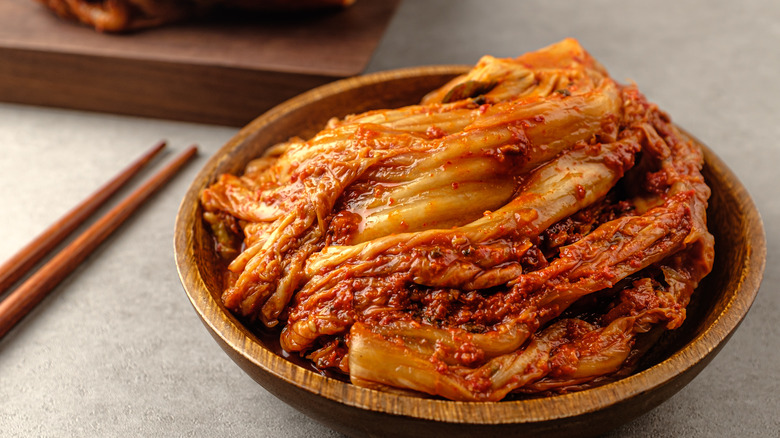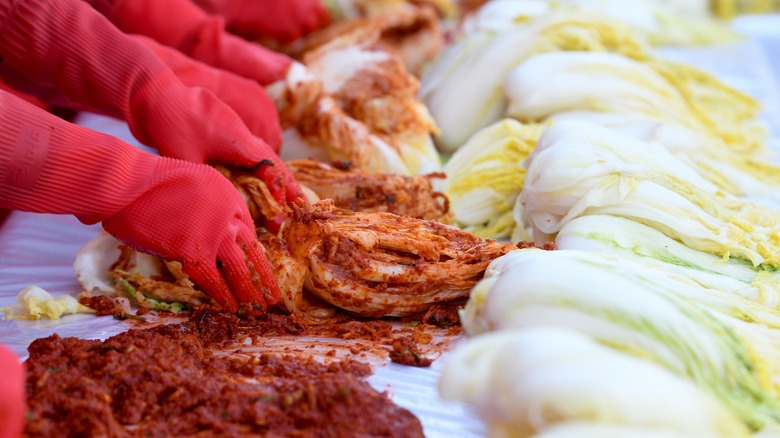How To Tell If Kimchi Has Gone Bad
Kimchi, a fermented dish typically made from napa cabbage and flavored with red pepper flakes, is a staple of Korean cuisine. The BBC reports that, though there has been some debate as to whether or not kimchi originated in China from the Sichuanese dish pao cai, the prevailing theory suggests that it originated as a way for Korean farmers to preserve vegetables during the winter.
According to the Journal of Ethnic Foods, ancient Koreans first began fermenting food during the Three Kingdoms Period, from 37 B.C. to 668 A.D. Records refer to the cultivation of Korean red pepper, a crucial ingredient in kimchi that gives it its distinct spicy flavor and helps aid the fermentation process. There are many variations of kimchi, but the dish has come to symbolize Korea and is considered the country's national dish.
Since kimchi was originally developed as a method of food preservation, it's easy to assume that it'll last indefinitely. However, while it's true that it will last a long time, it's not one of those foods — like honey or chocolate — that can last years or even endlessly.
Kimchi's shelf life depends on multiple factors — and personal preference
According to EatingWell, store-bought kimchi lasts around eight months to a year in the refrigerator before it starts to go off. Homemade kimchi, which isn't necessarily made to the same sanitation standards as its store-bought counterpart, might not last quite as long.
Kimchi-Recipes.com explains that there are a number of other factors that can impact the shelf life of this fermented food, too. For example, kimchi with a high salt content will last longer, and storage temperature has a big impact, too, with refrigerated kimchi lasting significantly longer than jars kept at room temperature.
However, whether your kimchi has gone bad can depend on personal preference. Since kimchi continues to ferment in the fridge, you may find it unpleasantly sour and mushy after a few months — but if you prefer the pungent taste, that may not necessarily be a bad thing. Old kimchi can start to mold over time, though, so inspect your jar for mold and toss it if you notice anything off.

